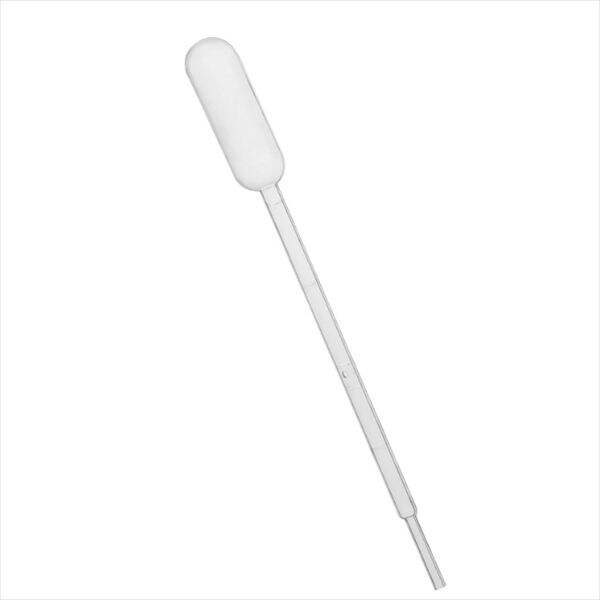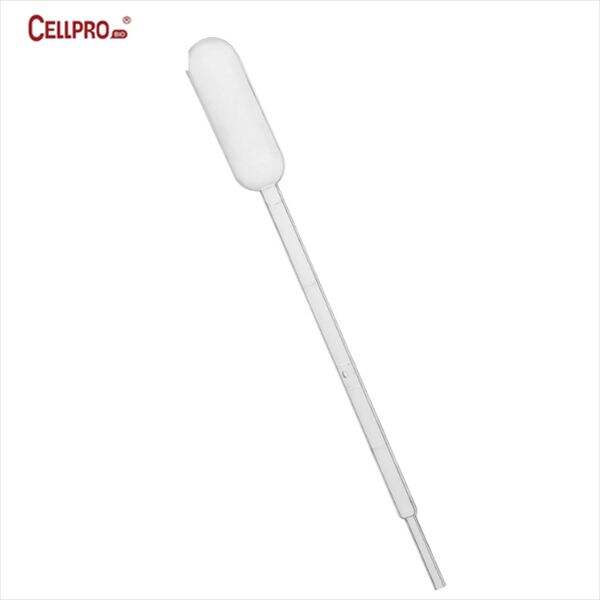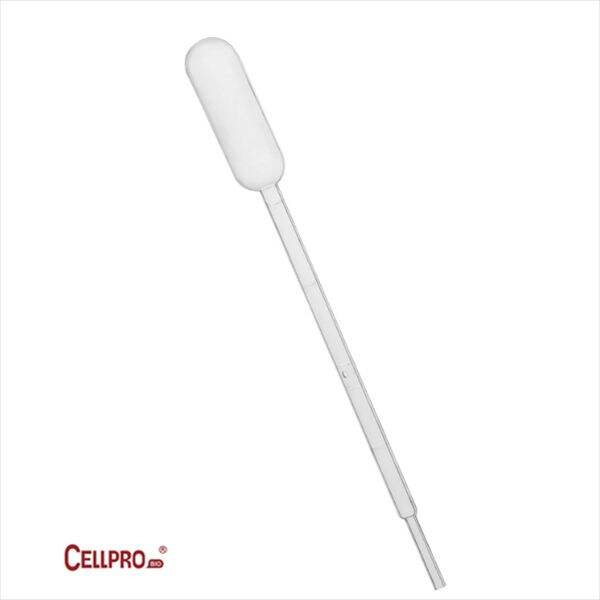पेस्चुर पाइपेट एक प्रकारको ट्यूब हो जसले विभिन्न वैज्ञानिक प्रयोगहरूमा खोजकर्ताहरूले तरल आयतनहरूलाई उच्च सटीकतासँग माप्न मद्दत गर्दछ। तीहरू रसायनिक र जैविक विज्ञानहरूका अनुसंधान कार्यालयहरूमा बढी उपयोग गरिन्छ, जहाँ सानो आयतनहरूपनि परिणामहरूमा बढी प्रभाव गर्दछ।
पागलपनमा विधि: पेस्चुर पाइपेटहरूले कसरी सटीक मापन गर्दछ
पेस्चर पाइपटमा यसलाई सुतैलो बनाउने कार्यक्रमको फाइदा छ, जसले द्रव पारगमन गराउन सापेक्षिक रूपमा सूचना नभएपनि यसलाई सफेदी भण्डारण गर्न आवश्यक छैन... यसको ब्लॉगहरूको अपडेट गर्ने शृंखलामा त्यस्तै हो- (मेरा आँसु मेरो कॉफीमा पर्छ)। केही घाट दिनहरूमा म ठिक छैनौं, तर अर्को समयमा म तपाईंलाई निराश नगर्नेछु! दबाव वा कोणको फरक द्रव पारगमनमा अनियमितता ल्याउन सक्छ। यस द्रवको माप गर्न एउटा उपकरण जसलाई 'बल्ब' (वा वैकल्पिक रूपमा: ड्रॉपर) भनिन्छ, यसलाई अन्य कन्टेनरमा यस द्रवको मात्रा खट्टै निकाल्न विशिष्ट रूपमा डिझाइन गरिएको छ।
पेस्चर पाइपट चयन र त्यसलाई राख्ने काममा राख्न भएको छ
विश्वसनीय मापन प्राप्त गर्ने सबैभन्दा महत्वपूर्ण भाग हो पछाडी पाइप चयन गर्नु। केही पाइपहरू फेरि एकदम सटीकता पर्दछ जसले खास (१-२) आयतन दरमा केल्यौंदा, जबकि अधिक सामान्य प्रयोगका विकल्पहरू अन्य रेंज पनि प्रदान गर्छन्, तर बढ्दै जान्छ त्यसलाई सटीकता मा कमी भएको छ। अझै, पछाडी पाइपहरू थारै र शुष्क हुनुपर्छ जसले प्रयोगहरू प्रदूषित हुँदैनन् र परिणामहरू पुनरावृत्ति गर्न सकिन्छ।
पेस्चर पाइपेटहरू एउटा सुक्ष्म उपकरण हो, जुन कसैले प्रयोग गर्न सम्भव हुँदा ध्यानबाट चलानु पर्दछ। पतलो काँचको निर्माणले ध्यान र सावधानी माग्छ जसले गलत प्रयोगमा सुरक्षाका खतरालाई रोक्छ। तरिकापूर्वक द्रव पाउँदा ठीक उपकरणलाई ड्रॉपर वा बल्बसँग मिलाउनु पर्दछ, अन्यथा तपाईंको महँगो पाइपेटलाई बिगार्ने झण्डै खतरा छ। प्रत्येक प्रयोगपछि निश्चित विलयनले सफाई गरेर पाइपेटलाई पछिल्लो प्रयोगको लागि तयार गर्न आवश्यक छ।
जीवविज्ञान र रसायनशास्त्रक्षेत्रमा पेस्चर पाइपेटको उपयोग
पेस्चुर पाइपेटहरू विज्ञानीहरू द्वारा संसारभरका प्रयोगशालामा आच्यूटन अध्ययनहरूमा प्रयोग गरिन्छ - केरोवाट भाइरसहरू र प्रोटीनहरू त्यसैगरि रासायनिक पदार्थहरूसँग काम। जीवविज्ञानी अनुसंधानका क्षेत्रमा, यी पाइपेटहरू प्रयोगका लागि समाधानहरूलाई सटीकतापूर्वक थप्नका लागि प्रयोग गरिन्छ र रासायनिक प्रयोगशालामा, यी प्रतिक्रियाहरूको लागि आवश्यक पुनर्योजनहरूलाई सटीकतापूर्वक बाँट्नका लागि प्रयोग गरिन्छ। यसको अलावा, विज्ञानीहरू पेस्चुर पाइपेटहरूलाई तरल मात्राहरूको पुनर्प्राप्तीका लागि र तरलहरूको गुणहरूलाई सतह तनाव आधारित प्रयोगहरूद्वारा अध्ययन गर्नका लागि प्रयोग गर्छन्, जसले वैज्ञानिक अनुसंधानमा यी उपकरणहरूले प्रदान गर्ने महत्वपूर्ण विविधतालाई दर्शाउँछ।

गर्भावस्थाको बर्षहरूमा, पेस्चुर पाइपटको डिझाइन र निर्माणमा महत्वपूर्ण प्रगति हुई छ। हालका मॉडलहरूमा, तथापि, त्यहाँले साधारणतया एक कारोजी प्रतिरोधी कोटिंग द्वारा संरक्षित छन् र अक्सर प्लास्टिक वा कार्बन फाइबर जस्ता सामग्रीहरूबाट बनाइएका छन् किनभने त्यहाँलाई रक्षित गर्नका लागि। यी विभिन्न आकार र आकारको विकल्पहरू वैज्ञानिकहरूलाई आफ्नो अनुसंधानको उद्देश्यका लागि सबैभन्दा उपयुक्त पेस्चुर पाइपट छनौट गर्न मद्दत गर्दछ, जसले अनुसंधानको कार्यहरूलाई सुधार्दछ।

पेस्चुर पाइपट एउटा छिल्लो शीशा उपकरण हो जसले लेबमा छोटो खात्रो द्रवहरूलाई हिलाउन वा उठाउन प्रयोग गरिन्छ। द्रव परिवर्तन गर्न पेस्चुर पाइपट प्रयोग गर्न एउटा कौशल हो जसलाई वैज्ञानिक कार्य प्रसिद्धतापूर्वक र सटीकतापूर्वक गर्नका लागि पूर्णतया सीख्न आवश्यक छ। यसले पेस्चुर पाइपटलाई बढ्दै नियन्त्रणमा प्रयोग गर्न अनुमति दिन्छ, जसले वैज्ञानिकलाई मद्दत गर्दछ किनभने त्यहाँले आवश्यक द्रवको खात्रो अनुसार सबैभन्दा उपयुक्त पेस्चुर पाइपट छनौट गर्न सक्ने छन् र सही अवशोषण र निस्कासन कार्यहरू प्रदर्शन गर्न सक्ने छन्।
पेस्चुर पाइपटका विभिन्न प्रकारहरू र त्यहाँका उपयोगहरूको रहस्य स्पष्ट गर्न
विज्ञानशालाहरूमा विशेष उद्देश्यहरूको लागि प्रयोग गरिने विभिन्न प्रकारका पास्तर पाइपेटहरू छन्। काँच पास्तर पाइपेटले सुको अग्नु राखिएको हुन्छ, र पुनः प्रयोग गर्न सकिन्छ, जबकि प्लास्टिक सेरोलॉजिकल पाइपेटहरू मत्स्य वा रक्त बैंकिङ्ग अनुप्रयोगहरूमा तरल पदार्थहरू माप्न र फ़ेल्नका लागि आदर्श विकल्प हुन सक्छन्। सस्तो डिस्पोझबल प्लास्टिक पास्तर पाइपेटहरू पनि अन्य वैज्ञानिक शाखाहरूमा लागी लागतमा बाधित विज्ञानशालाहरूको लागि पहुँचनीय वैकल्पिक रूपमा सेवा गर्दछन्।

पास्तर पाइपेटहरू विज्ञानशालामा ईमेलको लागि आवश्यक उपकरण हुन सक्छ, जसले उसको उपयोगमा केही समस्याहरू सामना गर्न पर्दछ। तरल पदार्थसँगै वायु बुलबुला लिने वा बढी मात्रामा तरल पदार्थ खोल्ने गलतिहरू प्रयोगहरूबाट प्राप्त गरेको परिणाम सटीक रूपमा फर्कलाय सक्छ। पास्तर पाइपेटको ठीक आकार चयन गर्न तरल पदार्थको मात्रापर निर्भर गर्दछ र उपयोगमा सावधानी बढाउन यी समस्याहरूको बाधाहरू ओलान्छ, तर प्रयोगका परिणाम सटीक रूपमा राख्ने गर्छ।
पास्तर पाइपेटहरूको उपयोग गर्नका लागि टिप्सहरू लेब प्रथाहरूहरूमा लागि
तर पेस्चुर पाइपेटहरू आमदेखि अन्य कामहरूको लागि पनि प्रयोग गरिन्छ, जसले एउटा शोध प्रयोगशालामा यी उपकरणहरू प्रयोग गर्न सकिन्छ भन्ने दर्शाउँछ। विलयन बनाउनको लागि पनि यी प्रयोग गरिन्छ, जब कि तरल हेडिङ्ग कार्यहरूमा फेरफारी धेरै जरुरी छ भनेको लागि बूँदहरूको नियन्त्रण गर्न अधिक शुद्धता र प्रदूषणको जोखिम घटाउनको लागि। माइक्रोपाइपेटिङ्ग विधिहरूमा प्रशिक्षणमा पनि यसको उपयोग गरिन्छ। पेस्चुर पाइपेटहरूको उपयोग यी बुद्धिमान उपकरणहरूले विज्ञानी प्रयोगहरूमा कति अन्याय गर्न सकिन्छ भन्ने साक्ष्य प्रस्तुत गर्दछ।
आधुनिक उपकरणहरू र उच्च गुणस्तरको कच्चा सामग्री गुणस्तरको विश्वसनीयतालाई विश्वसनीय बनाउँछ। CellProले १००भन्दा बढी पूर्ण रूपमा स्वचालन गरिएको पास्चर पाइपेट उत्पादन गर्दछ, FANUC, ARBURG, ENGEL, TOYO र अन्य ब्रान्डहरूको इम्पोर्ट इन्जेक्शन मशीनहरू उत्पादन र क्षमतालाई विश्वसनीय बनाउँछ।
उच्च-तटस्थता रूपांकन R D केन्द्र पूर्ण प्रक्रिया उत्पादन विकास, माउड डिझाइन उत्पादन, र प्लास्टिक, प्रक्रिया पास्चर पाइपेट, जैविक प्रमाण तरफ निगर्तन गर्दछ र विभिन्न अन्य सेवाहरूको निगर्तन गर्दछ।
पेशागत प्रयोगशाला जीन विस्तारण, सेल संस्कृति प्रयोगशाला, माइक्रोबायोलजी प्रयोगशाला, पास्चर पाइपट टिप जाँच प्रयोगशाला आदि, जो एक स्थानीय जैविक प्रदर्शन परीक्षण कर्नेछन्, तथा अनुसंधान एवम् विकास रसायन, उपयोगी पदार्थहरू एवम् यंत्रहरूको एकीकृत रूपमा काम गर्नेछ।
उत्पादहरूले ISO9001, ISO14001, ISO13485 गुणस्तर प्रबन्धन प्रणालीहरू तथा CE FDA मानकहरूको अनुरूपता बनाएका छन्।
जब अनुसंधान कार्यालयको काममा तरल पदार्थ प्रेषण भन्दै आउँदछ, पेस्चुर पाइपेटहरू अन्य धेरैहरूभन्दा उनीहरूको क्षमताका बारेमा प्राधान्य दिइन्छ। पेस्चुर पाइपेटहरू, विशेषगरि शेङ्के मॉडलहरू अन्यहरूभन्दा सटीकतामा परिचित छन् र उनीहरूलाई आसानीसँग पनि सफाई गर्न सकिन्छ, तर कुनै पनि वैज्ञानिकले यसलाई अनुसंधान कार्यालयमा प्रयोग गरिने जस्तै पाइपेटहरूभन्दा अधिक प्राधान्य दिन्छ। पेस्चुर पाइपेटहरू विस्तृत तरल आयतनहरू प्रबंध गर्न डिझाइन गरिएका छन्, जसले प्रणालीलाई अधिक विविधतापूर्ण बनाउँछ र अनुसंधान कार्यालयका प्रयोगहरूमा उच्च सटीकताको आवश्यकतामा सुरक्षाको स्तरलाई बढाउँछ; त्यसो भएकोमा मानवताले अन्य जगतहरूलाई खोज्नका बारेमा नया क्षेत्र खोल्दछ जसले देखिएको भन्दा बढी छ।